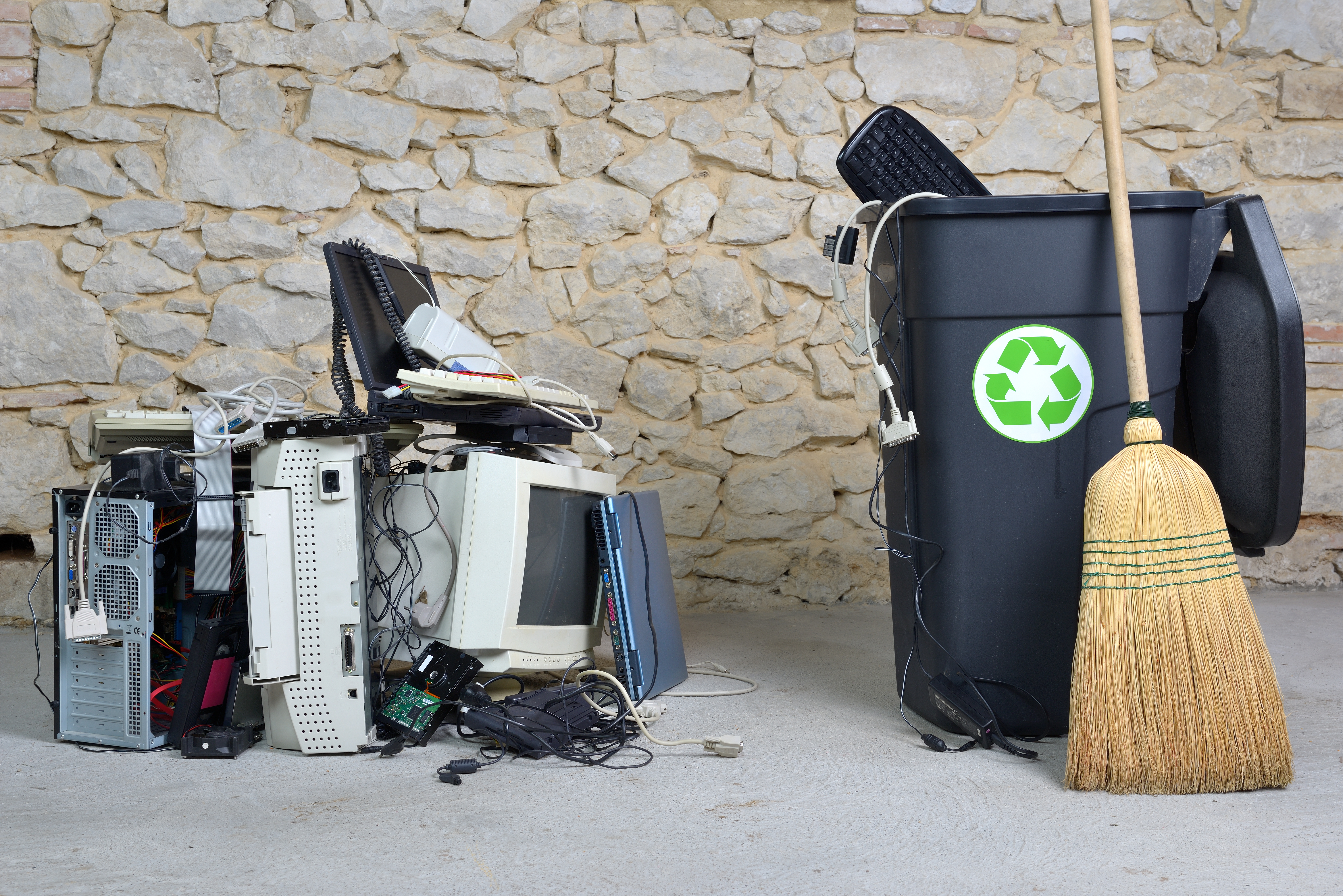In the not so distant past, there were no specific regulations with regard to the disposal of electronics. Individuals and companies alike simply loaded up their unwanted equipment and hauled it to the local dump where it lay dormant—but still hauntingly active.
What we now know is that electronic devices contain harmful materials. Over time, these can leach into the surrounding areas, groundwater and soil, spreading harmful traces of mostly mercury and lead contamination.
Much-Needed Legislation
In the global drive to become more eco and environmentally friendly, most U.S. states have passed legislation regulating the proper disposal of electronic devices. For example, in 2011 North Carolina passed legislation to prevent the disposal of the following devices at landfills:
-
- Laptops
-
- Desktops
-
- Servers
-
- Mouses
-
- Printers
-
- Monitors
-
- Scanners
- Fax Machines
- Printer / Scanner / Fax Combinations
[Note: This legislation was later amended in the March 16, 2015, Session Law 2015-1, and now keyboards and mouses are not included in the list of forbidden electronics.]
Commercial businesses are facing an ever-growing problem of what to do with outdated electronic equipment. What do you do with those old computers? That old server? Or other old electronic equipment you pushed into a corner of the closet? Nowadays, there are alternatives to simply throwing away your old electronic devices. Many states and local municipalities require some type of recycling for these devices. (Check your local city or county rules for discarding electronics).
E-Cycling Is The Answer
Electronic equipment recycling, or e-cycling, has become a necessary and growing business practice and expense for commercial businesses. E-cycling is commonly defined as re-using—or distributing for reuse—electronic parts and components, rather than discarding them in landfills. The primary reason for e-cycling, as opposed to discarding, is because the toxic chemicals and components within electronic devices are harmful to the environment, groundwater supplies and humans and animals alike. There are also other benefits to e-cycling, such as the creation of jobs, reducing waste and setting an example of global conservation.
Before recycling electronic devices, businesses should develop a strategic plan concerning the type of e-cycling they wish to enact. This could be simply dropping materials off at a designated e-cycling center, donating the devices to a local school or giving them to a private or non-profit company that provides e-cycling services. Each of these options has both costs and benefits, and deciding which is better for your company is an individual decision.
First Things First
One of the first issues facing a commercial business, prior to e-cycling, is cleaning the hard drive and storage memory of the devices. Discarding or recycling computers with sensitive data intact poses the risk of disclosure, identity theft and computer hacking. A best practice might be to have your IT department “clean” all old devices before sending them out for e-cycling. Not only computers, but cell phones, PDAs, servers and laptop computers should all be cleaned and their memories extinguished prior to e-cycling.
So, now that you’ve wiped the devices clean, what to do? Depending on your state, city or county, you may have different options. For example, you may simply be able to discard the electronic devices at a designated drop-off location (many states and municipalities now have designated e-cycling sites).
One Man’s Trash…
Increasingly, instead of throwing the devices away, they can be refurbished, donated or recycled. Many commercial companies are feeling more charitable and socially responsible. For those, there are local business that will accept your outdated electronics with little or no cost. Some companies even take it a step further and use the older devices for educational programs, training and hands-on-experience in the repair or construction of computers. One such program in the Research Triangle, NC, area is Triangle E-cycling, which works with several schools in the local area teaching students valuable technology skills.
One thing is for sure: Our reliance on electronic devices is growing exponentially, and these devices will not go quietly into the night. Businesses should think about having a plan or strategy in place before actually needing to replace old electronics devices. This will help save time and resources in the long run. You may be doing your part in helping the environment or even contributing toward a worthy cause as well.
An Ounce Of Prevention
Want to put off needing to e-cycle for a bit longer? Here are some tips for extending electronic device lifespans:
-
- Clean and dust your devices on a regular basis.
-
- Keep electronics out of the sunlight—overheating is a leading cause of failure.
-
- Add additional memory to your devices.
- Install upgrades only when necessary.
PRIDE. COMMITMENT. EXCELLENCE.
Most people don’t think too much about the trash we throw away… But some of us think about it a lot. At Patriot Sanitation Management, we’ve made it our business to figure out how to manage waste better. To learn more about our services, contact us today: (919) 773-8008 for your free commercial waste removal estimate.



